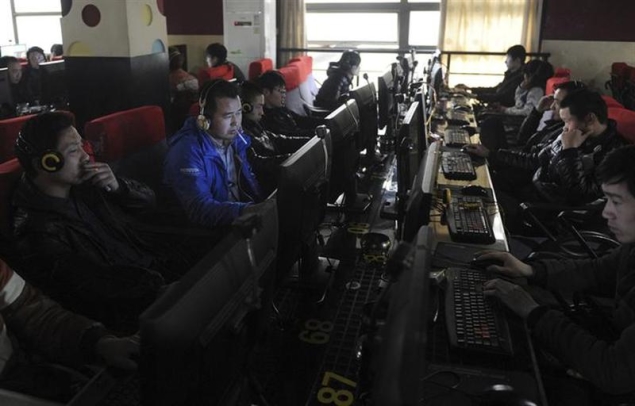- Home
- Internet
- Internet News
- China, Russia buying surveillance technologies to 'control' the Internet: US
China, Russia buying surveillance technologies to 'control' the Internet: US

Alec Ross, the U.S. secretary of state's senior adviser for innovation, said new players such as Thailand and Ukraine would determine the future shape of the Internet by deciding whether to open up globally or operate more closed national "Intranets".
His comments further demonstrate the lack of agreement over how the Internet will be regulated after an attempt to establish a global governance policy collapsed last year.
"Many Middle Eastern countries, Russia, China and others I believe, are going to take an increasingly aggressive stand to try to control the Internet," Ross told a news briefing.
"In a world where countries like Russia, China and others are in a completely different place than the United States and when there is a completely different vision for how the Internet should be governed, then I think it's going to be very difficult to get to the point of resolution on some of these issues."
He said China, Russia and others had bought surveillance technology, but lacked the limits required in the United States, where only a judge can order their use for a defined period.
"So part of what I see are billions and billions of dollars of investment going into the next generation of surveillance technologies going into these countries," Ross said.
The United States and China have been squaring off for months over the use of the Internet, each accusing the other of hacking into sensitive government websites.
The Obama administration is committed to defending Internet freedom, a "pillar of America's foreign policy priorities" which led it to reject the global treaty last year, Ross said.
The attempt to establish a worldwide policy for oversight of the Internet collapsed in Dubai in December after many Western countries said a compromise plan gave too much power to United Nations and other officials.
The United States and allies fought to keep the mandate of the International Telecommunication Union, a U.N. agency, from extending to oversight of the Internet, fearing it could lead to increased censorship and a dramatic reduction in anonymity.
A bloc of countries led by Russia wanted language that could open the door to more regulation of cyber-space on issues from spam, security and the assignment of addresses to web pages.
However, Ross said some 30 new country players, rather than only the existing Internet giants, will take a decisive role in determining whether there is an open global Internet or a "patchwork of national Intranets".
"That's not going to just be decided by the very large countries like the United States, China and Russia, it is going to be increasingly decided by countries like Thailand, Ukraine and a great many others that are becoming newly networked themselves and are establishing the governance norms within their own telecommunications systems," he said.
Ross, who said he was leaving government to write a book and start a company, was speaking in Geneva where the United States honoured six "Internet Freedom Fellows" working to overcome challenges in countries including Russia and Iran.
© Thomson Reuters 2013
Get your daily dose of tech news, reviews, and insights, in under 80 characters on Gadgets 360 Turbo. Connect with fellow tech lovers on our Forum. Follow us on X, Facebook, WhatsApp, Threads and Google News for instant updates. Catch all the action on our YouTube channel.
Related Stories
- Samsung Galaxy Unpacked 2026
- iPhone 17 Pro Max
- ChatGPT
- iOS 26
- Laptop Under 50000
- Smartwatch Under 10000
- Apple Vision Pro
- Oneplus 12
- OnePlus Nord CE 3 Lite 5G
- iPhone 13
- Xiaomi 14 Pro
- Oppo Find N3
- Tecno Spark Go (2023)
- Realme V30
- Best Phones Under 25000
- Samsung Galaxy S24 Series
- Cryptocurrency
- iQoo 12
- Samsung Galaxy S24 Ultra
- Giottus
- Samsung Galaxy Z Flip 5
- Apple 'Scary Fast'
- Housefull 5
- GoPro Hero 12 Black Review
- Invincible Season 2
- JioGlass
- HD Ready TV
- Latest Mobile Phones
- Compare Phones
- Tecno Pova Curve 2 5G
- Lava Yuva Star 3
- Honor X6d
- OPPO K14x 5G
- Samsung Galaxy F70e 5G
- iQOO 15 Ultra
- OPPO A6v 5G
- OPPO A6i+ 5G
- Asus Vivobook 16 (M1605NAQ)
- Asus Vivobook 15 (2026)
- Brave Ark 2-in-1
- Black Shark Gaming Tablet
- boAt Chrome Iris
- HMD Watch P1
- Haier H5E Series
- Acerpure Nitro Z Series 100-inch QLED TV
- Asus ROG Ally
- Nintendo Switch Lite
- Haier 1.6 Ton 5 Star Inverter Split AC (HSU19G-MZAID5BN-INV)
- Haier 1.6 Ton 5 Star Inverter Split AC (HSU19G-MZAIM5BN-INV)







![[Partner Content] OPPO Reno15 Series: AI Portrait Camera, Popout and First Compact Reno](https://www.gadgets360.com/static/mobile/images/spacer.png)









